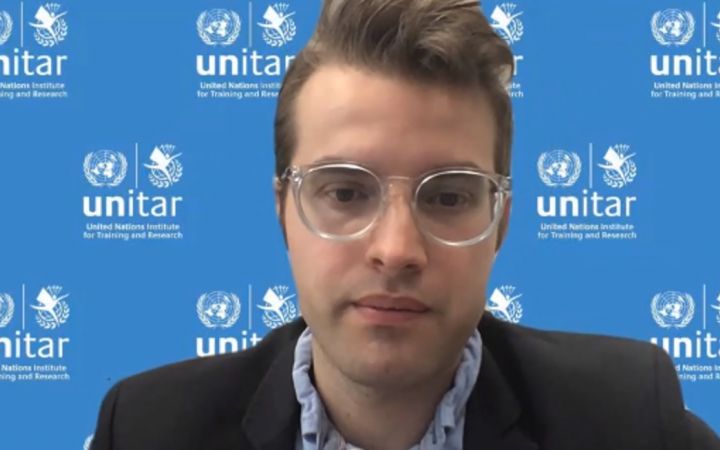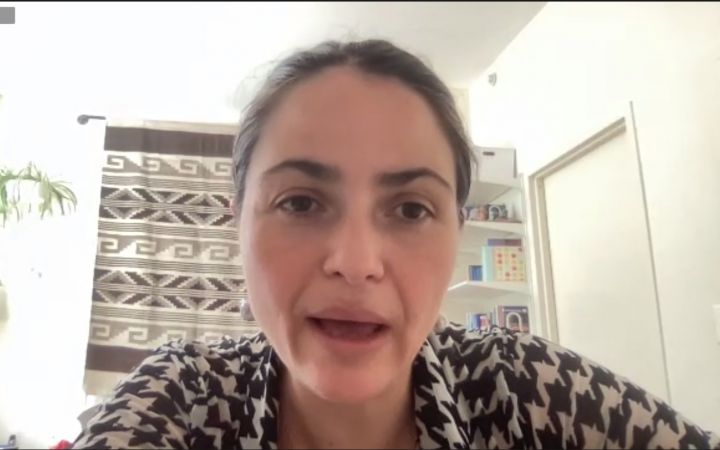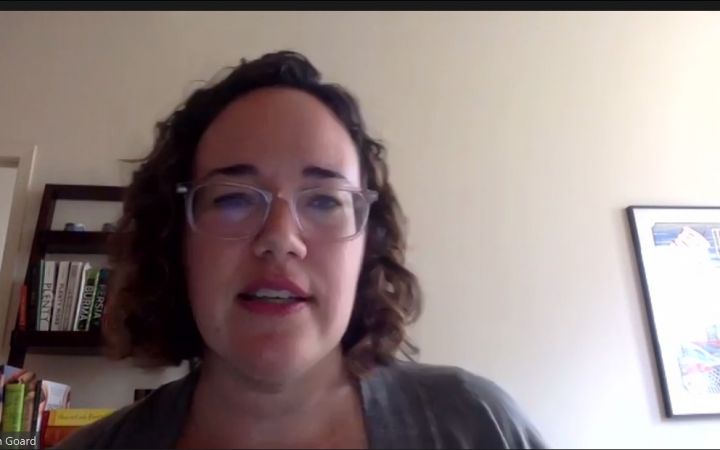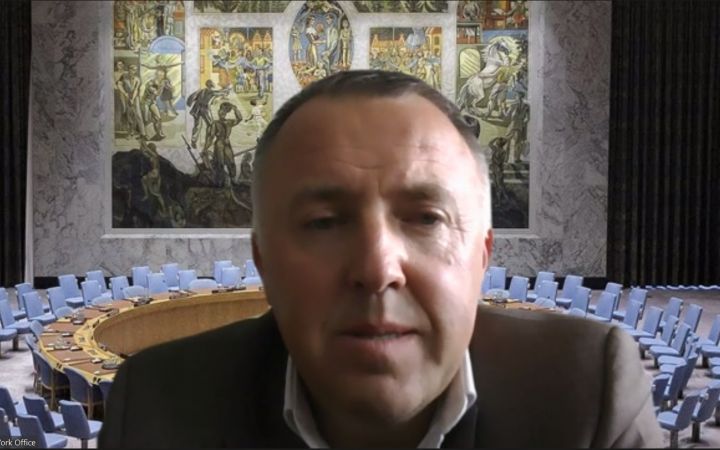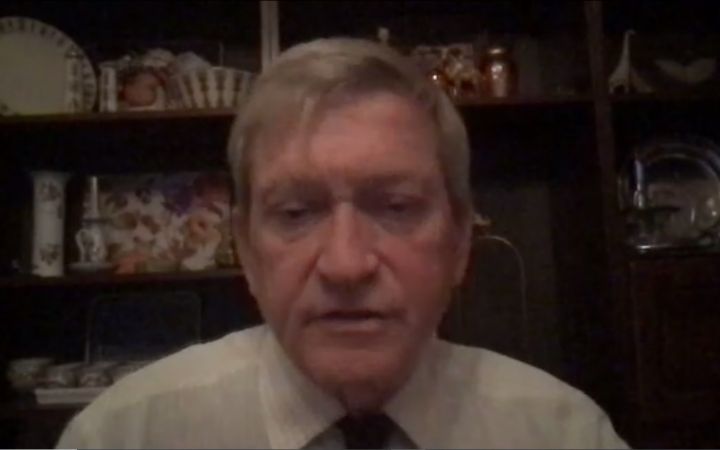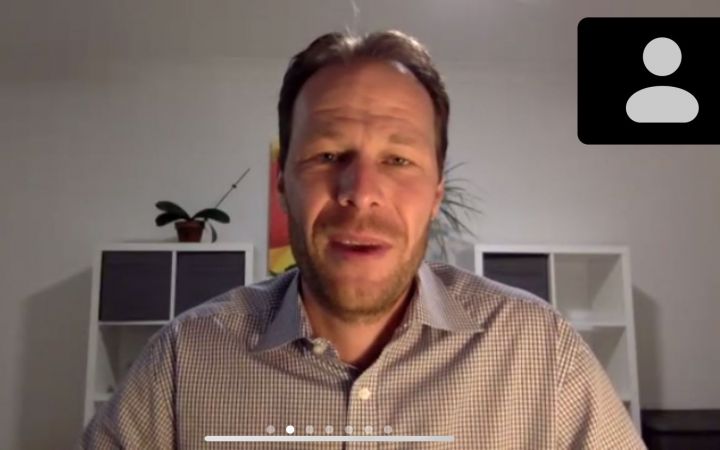20 September 2021, New York, USA - The United Nations Institute for Training and Research (UNITAR) New York Office in collaboration with the Permanent Mission of the State of Qatar, developed the Strengthening Knowledge and Skills in Multilateral Diplomacy: Induction Course for Qatar Diplomats that took place between 20 -24 September 2021 via Zoom. This is a comprehensive course designed to enhance the performance of 13 diplomats from the Permanent Mission of Qatar to the United Nations. Mr. Pelayo Alvarez from the UNITAR New York Office greeted the participants and the panelists Dr. Jimena Leiva Roesch, Fellow at International Peace Institute and Dr. Rebecca Webber, Former US Diploma, who presented the session together.
Dr. Leiva spoke briefly about the United Nations goal-oriented approach, which explains why the United Nations goals changed from the 8 Millennium Development Goals (MDGs) to the 17 Sustainable Development Goals (SDGs). She said that setting these goals helped pull in funding and provide a common compass. Dr. Webber explained the history behind the Sustainable Development Goals (SDGs) which were originally known as the Millennium Development Goals (MDGs), and about the fact that the MDGs were not universal enough, they were not a reflection of the whole world. They discussed the implementation of the SDGs and the challenges faced as well as the potential for opportunities and the role of Qatar. It was a very interactive session between both panelists and participants, and there was a negotiation exercise at the end of this first day .
Mr. Alvarez welcomed the Qatari diplomats on the second day, and introduced Ms. Susan Goard, Law Librarian/Training Coordinator, Dag Hammarskjold Library. Ms. Goard briefly introduced the different types of documents used, and issued, by the main organs of the United Nations. She explained how to review documents and the meaning behind the symbols. Ms. Goard talked about the General Assembly's rules of procedure and explained how to use the UN Digital Library, as well as how to search for specific documents using keywords. There was also an exercise on how to implement the UN Digital Library.
Dr. Angel Angelov, Former Deputy Permanent Representative of Bulgaria to the UN, took over on the third day. He discussed the two types of players in the General Assembly, namely states and groups. He explained the history of states and presented a UN membership growth graph. Dr. Angelov then went on to explain the difference between states and groups, providing examples to illustrate his point. He also talked about observer missions, the member states and how important they are to the Security Council, both permanent and non-permanent members. He discussed the Arab swing seat, the turning point and its history. At the end of the day, there was a Q&A session.
Mr. Alvarez welcomed participants on day four of the course and introduced the speaker, Mr. Larry Johnson, Adjunct Professor of Law, Columbia Law School, Former Assistant Secretary-General, Legal Affairs. The session began with a video animation created by UNITAR briefly explaining the UN resolution and how it functions. Mr. Johnson then described how negotiation works and provided a detailed explanation about how objectives and priorities are set and what other options are available. Mr. Johnson continued with an explaination of the procedures involved in the decision-making process at the General Assembly. He talked about voting, when it happens, the required majority, and how it is presented. The day ended with a A Q&A session.
On the final day of the programme, Dr. Nico Schulenkorf, Associate Professor of Sport Management at the University of Technology Sydney, started the session by discussing the role of sports in development. He gave a brief overview of Sports for Development and Peace. Dr. Schulenkorf talked about managing Sports for development projects in a social, cultural and health context. Dr. Per Svensson, Assistant Professor in Sport Management at the School of Kinesiology, Louisiana State University and Co-Editor, Journal of Sport for Development, picked up where Dr. Schulenkorf left off. Dr. Svensson discussed innovation in Sports for Development (SFD), how it is facilitated and how it manages to be sustainable. He later provided real-life examples, while also mentioning the role of SFD and how it affects others. Dr. Meredith A. Whitley, Associate Professor and Coordinator of Sport-Based Youth Development at Adelphi University, supported Dr. Svensson with a talk on policy-making. She also held an interactive session with participants. Dr. Whitley discussed the benefits of participating in sports and related topics. There was an interactive Q&A session at the end of the day before Mr. Harry Flynt closed the final session.


